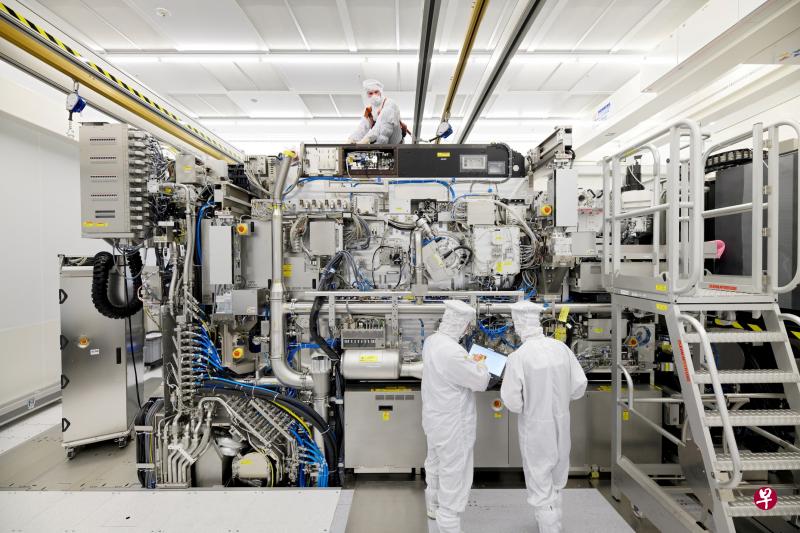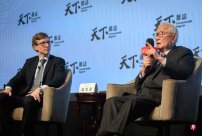
Bloomberg quoted people familiar with the matter and revealed that Japan and the Netherlands are preparing to form a powerful alliance with the United States in order to limit China to obtain advanced semiconductor manufacturing equipment and weaken China's ambition to build chip production capacity.Officials in the United States and Japan are still negotiating in Washington. The fastest will reach an agreement on Friday, but it may implement export restrictions on China without public announcement.
Japan and the Netherlands are said to have negotiated with the United States as early as Friday (January 27) to jointly restrict the export of advanced chip manufacturing equipment to China.Scholars of interviewees believe that it is surprising that the acceleration of the three countries in the United States and Japan and the United States. Once the formation will be the latest diplomatic victory of the Bayeng government, it will interfere with Sino -US relations that have been recovered slightly in the near future, and significantly impact Chinese chip manufacturing capabilities.
Bloomberg quoted people familiar with the matter on Friday that Japan and the Netherlands are preparing to form a powerful alliance with the United States in order to limit China to obtain advanced semiconductor manufacturing equipment and jointly weaken the ambition to build chip capacity in China.
As of Thursday evening of the Eastern time, officials in the United States and Japan and Dutch are still negotiating in Washington. The fastest will reach an agreement on Friday, but it may implement export restrictions on China without public announcement.
The Netherlands will expand the restricted optical machine giant ASML (ASML) to prevent the company from selling the most advanced chip and its crucial to making certain advanced chips (EUVs); Japan will also face Nikon (Nikon) Similar measures are taken.
Export control measures announced by the Biden Government in October last year, including strict restrictions on the most advanced chip manufacturing equipment to Chinese customers, or to buy cutting -edge chips that help their military and artificial intelligence capabilities from abroad.However, the main allies such as Rihe did not follow up at the time.
For the US -Japan -Dutch alliance, the Spokesperson of the National Security Council and the Dutch Ministry of Foreign Affairs are reluctant to comment.
Minister of Economic and Industry Nishimura Kangyu confirmed on Friday that Japan is discuss export control with the United States and other countries, but refuses to disclose more details.The Cabinet Deputy Secretary -General Mu Yuancheng also said on the same day that Japan will take "appropriate measures" based on regulatory measures in the United States and other countries.
Luo Minghui, assistant professor of public policy and global affairs curriculum of Nanyang University of Science and Technology, analyzed during an interview with Lianhe Morning Post that the United States and Japan Dedu formed an alliance in export restrictions on China, which is the "diplomatic victory" of the Bayeng government; this is bound to be in the near future.The emergence of some positive momentum of Sino -US relations to form interference will also cause a "major negative impact" on Chinese chip manufacturing.
Chen Gang, Assistant Director of the East Asia Research Institute of Singapore, pointed out in an interview that the United States and Japan and the Netherlands may form an alliance, reflecting the overall high -tech blockade and targeting of the West to China.He believes that under the pressure of the United States, more and more neutral countries are choosing to rely on the United States, especially in the background of Russia and Ukraine's conflict that relies very much on the United States.
Scholars: If multi -country joining technology blockade will put greater pressure on China
He said that if more and more countries on the semiconductor industry chain join the United States -led alliance, "technology blockade will indeed put greater pressure on China."
Luo Minghui evaluated that the Netherlands, which had a neutral position on export restrictions on China, has recently changed its decision, which may also be related to Japan's joining the alliance, so it is more likely to be convinced by the United States.
Although the observer expects the United States and Japan to form an alliance, Luo Minghui was surprised by the speed of the alliance formed because it happened before the US Secretary of State Brills visited China.
For the United States and Japan, it may not officially announce an alliance, Chen Gang evaluated that Japan's lotus relying on the Chinese market is actually unwilling to offend China. I believe that the two countries will only implement limited blockade against China.
The Senator of the Japanese Liberal Democratic Party, Aoyama, pointed out on Thursday that Japan's support for the Bayeng government to restrict semiconductor exports will definitely attract China's stronger revenge, and Japanese companies in China may be affected.
Tokyo Electron is expected to be most likely to be affected by new export restrictions.About a quarter of the world's fourth largest semiconductor equipment manufacturer depends on China.
Luo Minghui believes that China will definitely make a "strong response" to the United States and Japan's alliance. Whether the "War Wolf Diplomacy" has really reversed is still to be observed.
He expects that the Blingken's visit to China will also be affected, but China may avoid might to visit the new US House of Representatives McCarthy to visit Taiwan, which will be linked to the United States and Japan.The tension is kept cooling.


